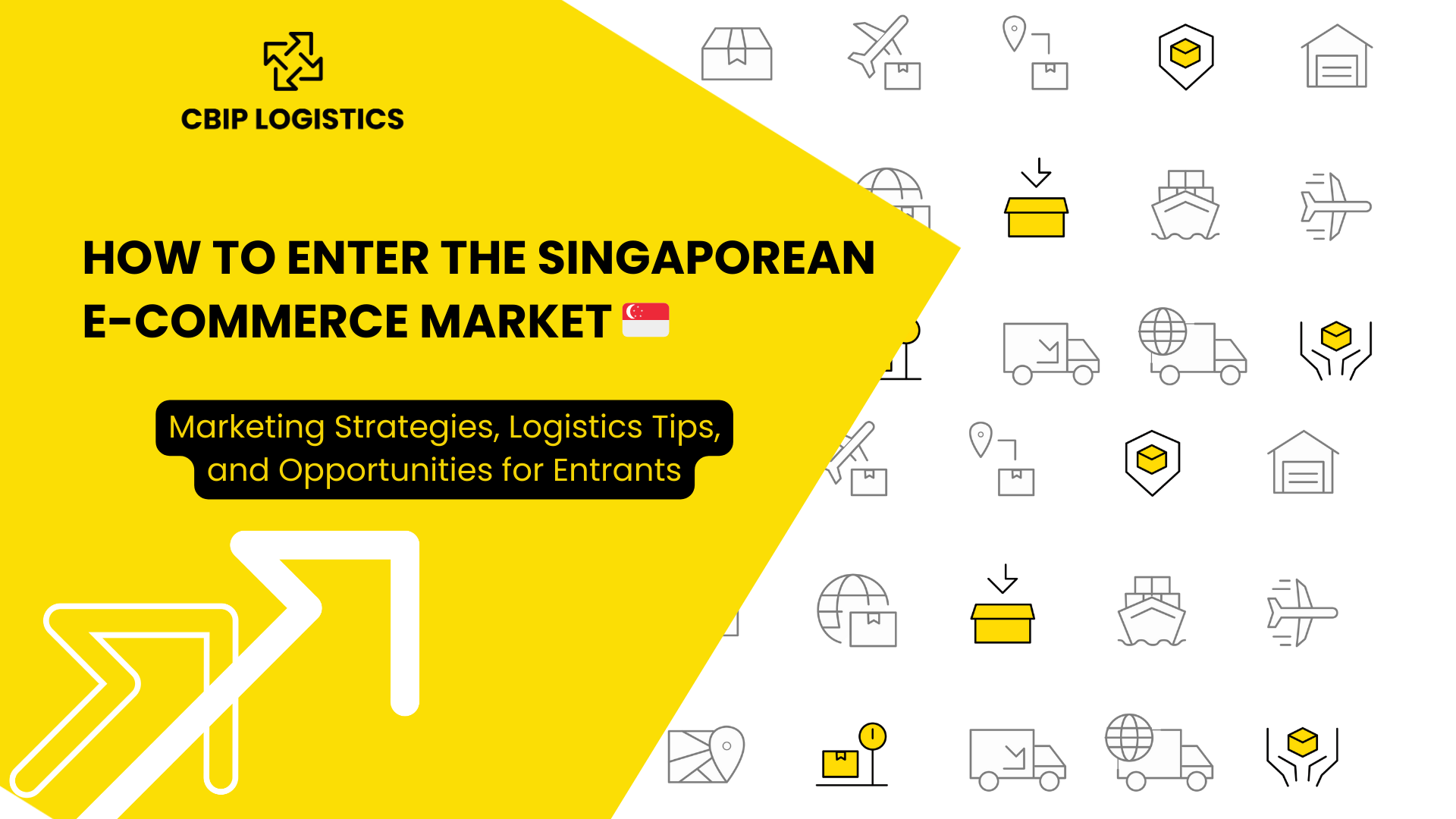ASEAN Market Series: How to Enter the Singaporean E-Commerce Market 🇸🇬

Singapore has been a high-tech hub for e-commerce in Southeast Asia for some years now. Competition is high, as are shopper expectations.
Plenty of foreign e-commerce brands have added Singapore as a market to focus on, but you have to be savvy and take the time to get to know the local preferences.
E-commerce retailers looking to establish your brand in Singapore — whether you are planning on setting up local fulfillment operations or just creating a tailored marketing plan for the nation, read on to discover the important traits of Singapore's e-commerce market, such as:
- Marketing strategy
- Logistics environment
- Challenges and opportunities
Read About CBIP's Full-Service Adaptable Logistics Solutions
Marketing strategy
Put mobile first
With one of the world’s highest smartphone penetration rates, it's a wise move to prioritize mobile platforms when designing a marketing strategy.
When creating a mobile strategy, of course, you’ll want to focus on marketing your product on whichever platform Singaporeans visit on their phones.
Social media has become an important avenue for e-commerce shopping. For the older generation, many still use Facebook. For younger shoppers, TikTok and Instagram are the big draws.
Besides marketing, you should make sure that your e-commerce site is optimized for mobile devices — that means fast speeds and easy mobile payment integrations.
Young consumers lead the way
Gen z buying power continues to rise as the generation ages and accumulates wealth. This rising generation should be taken into account for e-commerce development in the country, as they are the ones pushing e-commerce popularity forward.
Social media marketing
As in most of Asia, if you are going to sell e-commerce, your marketing strategy AND sales platform should include a lot of social media.
Facebook remains popular among the older generation, but for younger Singaporeans, Instagram and TikTok are where they discover new trends and make purchasing decisions.
45% of young people use social media to discover and purchase products, so you are going to want to get active on socials to market to Singaporeans. You can do this through live selling over video streams, and partnering up with local influencers to market your products.
Get to know Singaporean e-marketplaces
Apart from selling through social media, purchasing through one of the huge e-marketplaces is also incredibly popular in Singapore.
Like anywhere else, Amazon is a popular choice for online marketplace shopping. Then, there are the options more local to Singapore and Southeast Asia, such as Lazada, Shopee, and Carousell.
Related: How to Enter the Thai E-Commerce Market
The state of logistics
Singapore has excellent infrastructure, so you can trust that logistics will be efficient and tech-enabled more often than not.
Many international carriers and shippers have hubs in Singapore, so you may wind up shipping goods through the country if you do business with other parts of Asia. The nation is also rated first in customs clearance efficiency.
Whether you are shipping parcels or containers to Singapore, you’ll be in very good hands.
Challenges and opportunities
As e-commerce grows, local consumers are looking to purchase a more diverse range of products online. This creates a huge opportunity for foreign brands. As a foreign brand, if you can create a niche that brings a unique product to the Singaporean consumer, you may be able to carve out a place in the market for yourself.
Competition may be fierce in the country, but so is the opportunity to create a niche with the right omnichannel marketing strategy.
A 2023 study showed that 4 out of 5 Singaporeans choose to browse new products online before purchasing in brick-and-mortar stores. This tells us that Singaporeans like to do ample research before making a purchase, but ultimately want to see items in person and get the instant gratification of buying in-store.
Of course, you could always combat this by establishing a brick-and-mortar location, but that may require significantly more investment than most retailers are willing to make. Instead, win them over with a great online shopping experience.
The way to win customers in this market is to give them tailored buying experiences that help them understand what the product looks like before buying, like virtual try-ons and live-selling. These methods give shoppers the confidence to purchase without visiting a store.
Expand your business in Southeast Asia with CBIP's help
Entering a market like Singapore can be intimidating. While it's easy to find good 3PLs and plenty of carriers to choose from, the amount of logistics options can be intimidating.
That’s where you can use us: We’re CBIP Logistics, your partner for end-to-end, 4PL logistics, located conveniently out of Hong Kong (plus all over the world). We have over ten years of experience working in Southeast Asia, and we can help you get the best logistics in the region.
How does our model work? As a 4PL, we don’t own our warehouses, trucks, or other logistics assets. Instead, we work with a wide network of globally located providers.
We have those providers integrated with our in-house technology platform. Then, when you choose to work with CBIP, we connect you to them through our platform. We set up your logistics, manage it, and consult you on how to make better decisions to grow and improve your business.
Want to find out more? Give us a call for a free consultation today.






